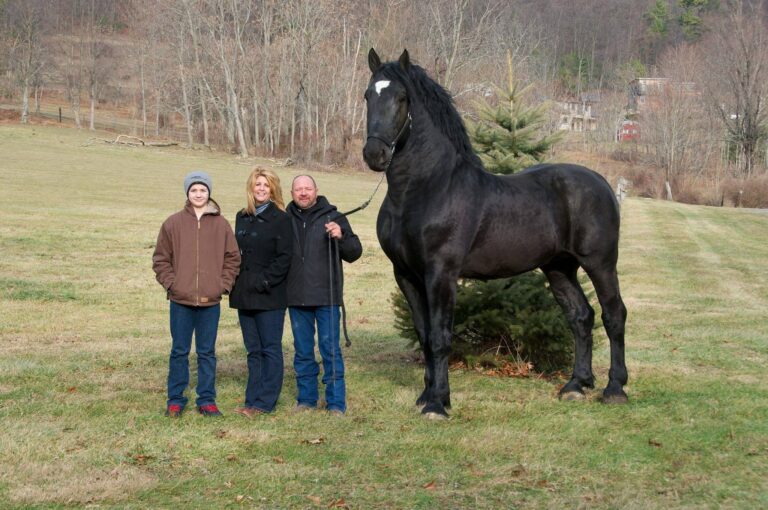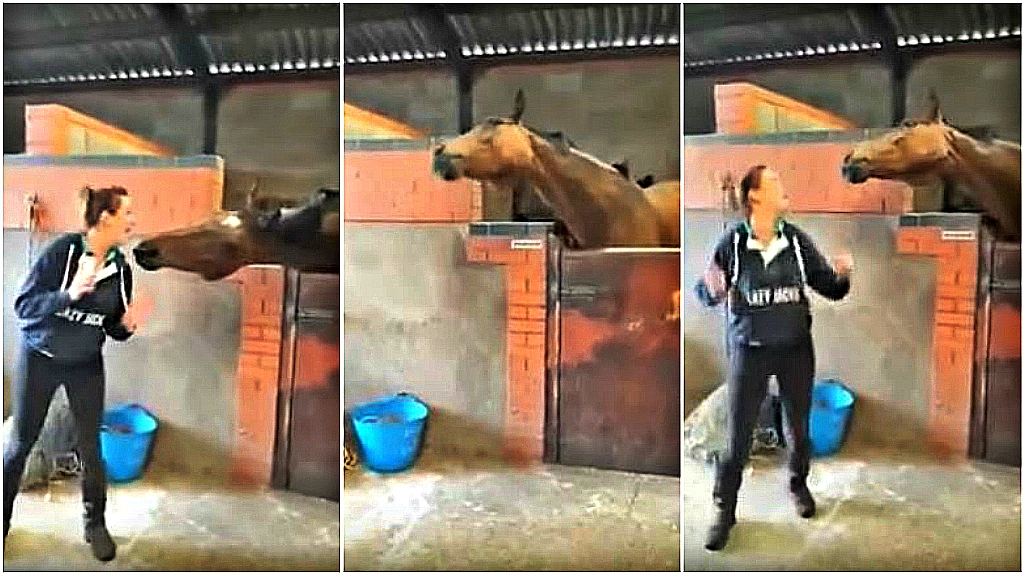The horse is one of the most intelligent animals. He knows who his friends are and gets too stiff when a new member joins his group.
The white horse in the video clearly knows that “there is an imposter among us.” He does not become hostile, but he piques the interest of the other horses in the neighborhood, who are friendly and eager to meet the “newcomer.”

Unlike other animals, horses react positively to good stimuli. If you treat them well, they will remember and either meet you with a sigh or leave you happy.
Horses are intelligent, but some are unquestionably more so than others. They have the capacity to learn, but also to solve problems for themselves, such as unlocking stable screws and releasing mishaps on the field.
With proper and continuous training, a horse learns rapidly. Also, the horses will remember their daily schedule, such as when it is eating time or when they may anticipate treats, and so on.

Horses are very gregarious creatures. In the wild, they rely on one another for information that secures the survival of the whole band. If a predator comes on the horizon, for example, a horse rapidly informs the others via a variety of signs. These indications include fluffing, pinched ears, and stomping. There’s no reason he shouldn’t attempt to interact with others.
Horses rapidly pick up on orders and body language. They recognize the sounds of the meal, such as the sound of a quad filled with hay or the sound of a wheat crusher at a feed store.

If your horse is more concerned with what is going on around him than with you, he is more likely to get terrified. It is usually a good idea to draw his attention to yourself so that he is less likely to be afraid of his surroundings. If he is attempting to divert his focus away from you by doing something simple that he already knows, you should strive to draw his attention back to you.







